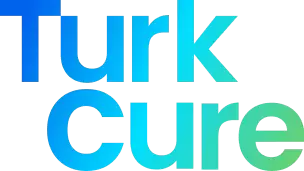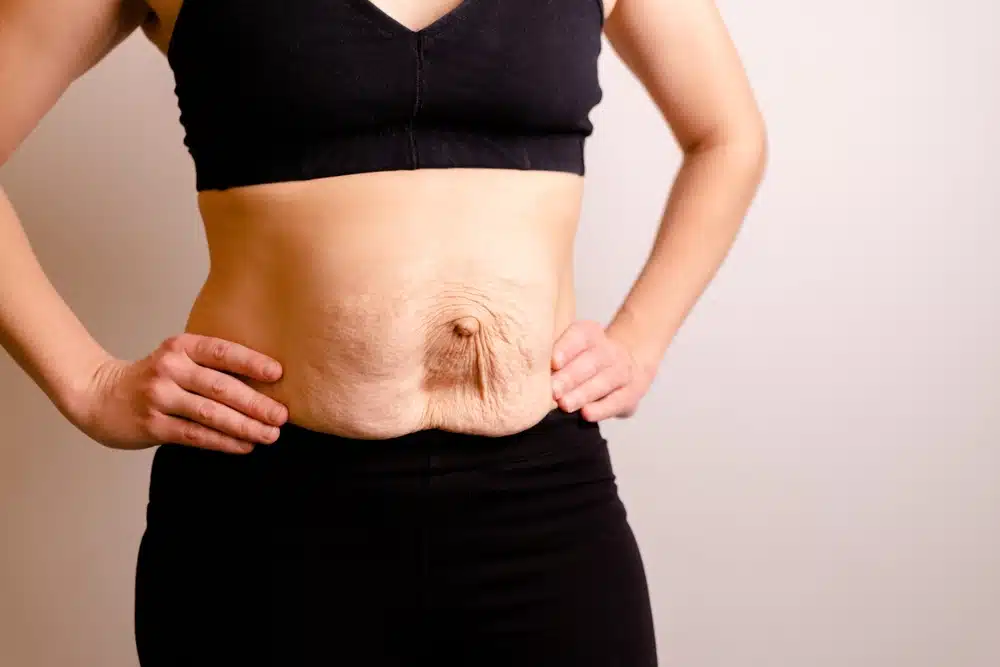
Hernia is a medical condition that occurs when an organ or fatty tissue squeezes through a weak spot or opening in the surrounding muscle or connective tissue. While it can affect anyone, understanding the causes, available treatments, and recovery process is essential for those who may face this condition.
A hernia takes place when an internal part of the body, such as the intestine or abdominal tissue, protrudes through the surrounding muscle wall. It often appears as a noticeable lump or bulge, especially when engaging in activities that increase abdominal pressure, like lifting heavy objects or straining.
TurkCure is proud to offer the possibility of hernia surgery in Istanbul with high quality and reasonable prices at one of the most renowned centers for aesthetic and therapeutic surgery in Turkey. Fill out the free consultation request form now to book your appointment!

Special Offer
Price: 2500 € 2900 €

Special Offer
Price: 2050 € 2450 €

Special Offer
Price: 2200 € 2500 €

Special Offer
Price: 4100 € 4500 €

Hernias can develop due to various factors, including
Hernias can occur in various parts of the body, each associated with different characteristics and risk factors. Listed below are common types of hernias, ordered based on their occurrence frequency:

Location: Upper thigh, near the groin
Frequency: More common in women
Description: Similar to inguinal hernias but occurs lower down, often appearing as a lump in the upper thigh.
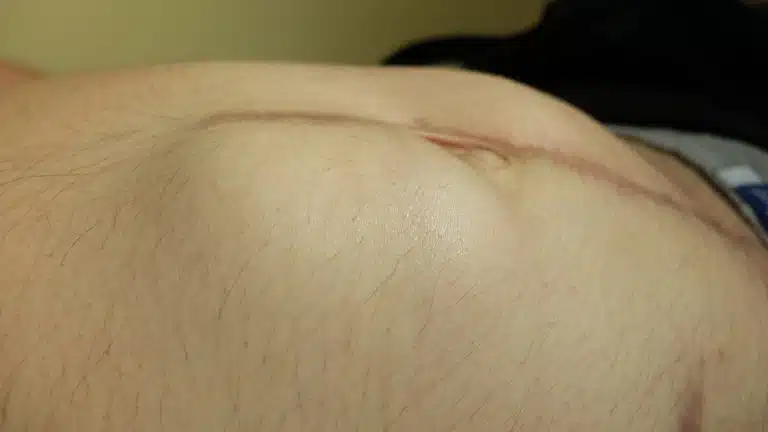
Location: Occurs at the site of a previous surgical incision or scar
Frequency: Develops after abdominal surgery
Description: Tissue or organs protrude through a weakened area in the abdominal wall where surgery occurred.
Location: Around the navel or belly button
Frequency: Common in infants; may persist or develop in adults
Description: Part of the intestine or abdominal lining pushes through a weak spot in the abdominal wall near the navel.

Location: The upper part of the stomach protrudes through the diaphragm into the chest
Frequency: Common, especially in people over 50
Description: The stomach pushes through an opening in the diaphragm, leading to acid reflux and heartburn.
Location: Upper abdomen between the navel and breastbone
Frequency: Less common
Description: Small fatty tissue or part of the intestine protrudes through the abdominal muscles.
Location: Along the side of the abdominal wall, below the navel
Frequency: Relatively rare
Description: Occurs along the linea semilunaris, where the muscle wall is weaker.
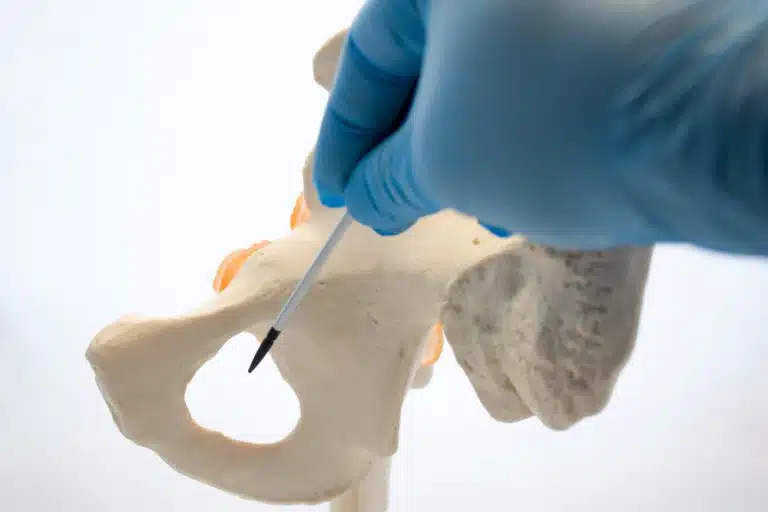
Location: Pelvic region, near the obturator foramen
Frequency: Uncommon
Description: Herniation of abdominal contents through the pelvic floor, often affecting elderly women.
While hernias can affect individuals of any age, gender, or background, certain factors may increase the risk:

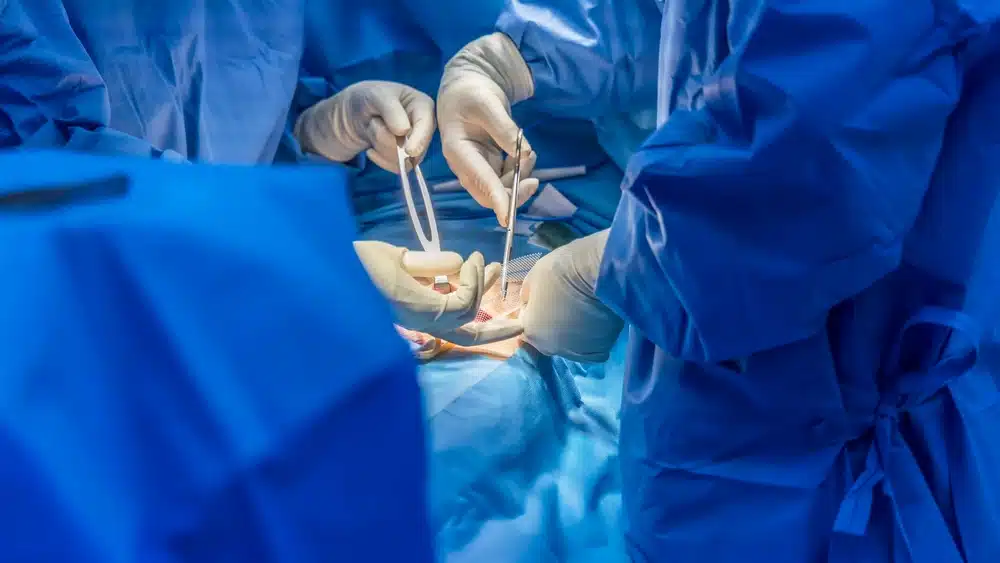
Treatment for hernias depends on the severity, symptoms, and individual health. Options include the following:
Surgery is typically recommended when:
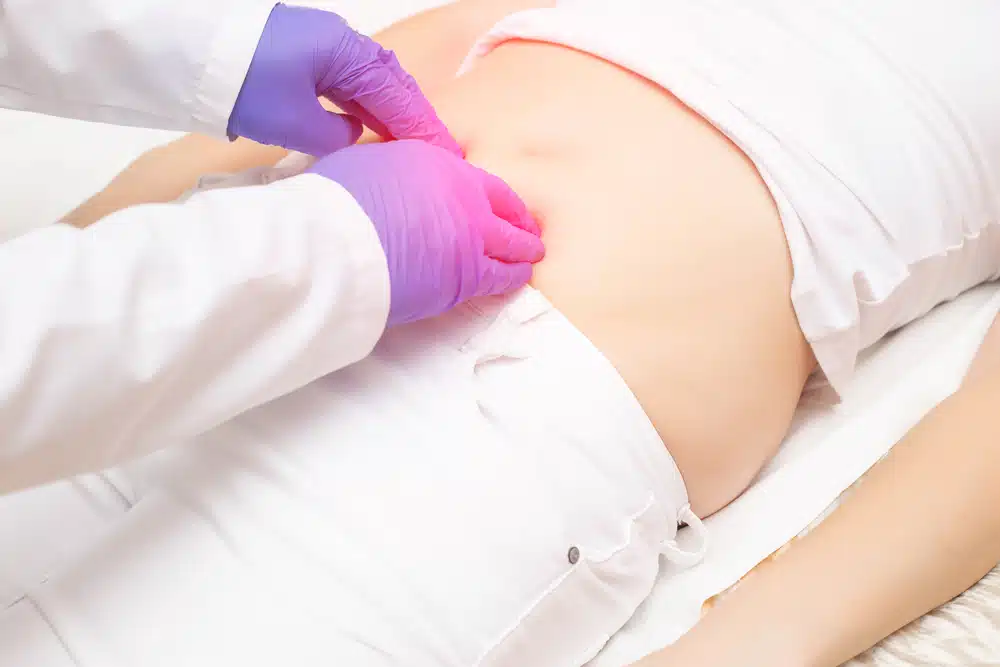
This traditional approach involves making an incision directly over the hernia and repairing the weakened muscle wall.
A minimally invasive procedure using small incisions and a camera for guidance. Recovery time is often shorter compared to open surgery.
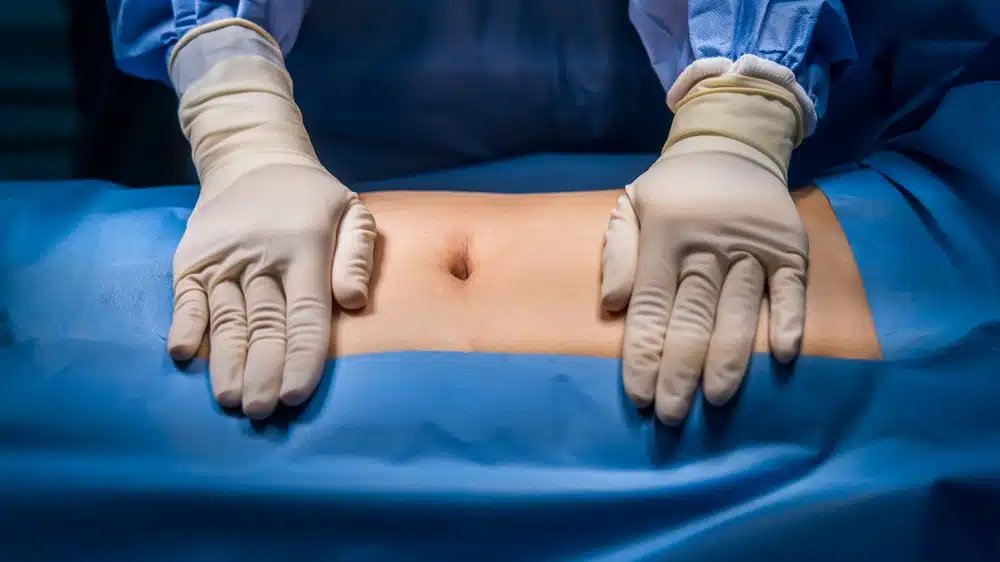
Hernia repair surgery is primarily considered a medical necessity rather than a cosmetic procedure. The goal is to address the underlying health issue and prevent complications.
Recovery from hernia surgery varies depending on the type of procedure performed. Patients may need to restrict certain activities during the initial weeks and gradually resume normal functions as advised by their healthcare provider. The recovery time suggested may last from 4 to 6 weeks.
While hernias can affect both men and women, men are more commonly diagnosed with inguinal hernias. Factors such as anatomy and increased physical stress may contribute to this higher prevalence.
When delving into hernia repair, one encounters a pivotal decision: whether to opt for an open surgical procedure or embrace a minimally invasive approach, also known as the robotic surgery of hernia. The intricacies of this choice are influenced by factors such as the size and complexity of the hernia.

For those amenable to robotic surgery, the benefits are tangible. The recovery process tends to be swifter, and patients may spend less time within the confines of a hospital setting. The postoperative period is often more comfortable for those who opt for robotic surgery compared to their counterparts undergoing traditional open procedures.
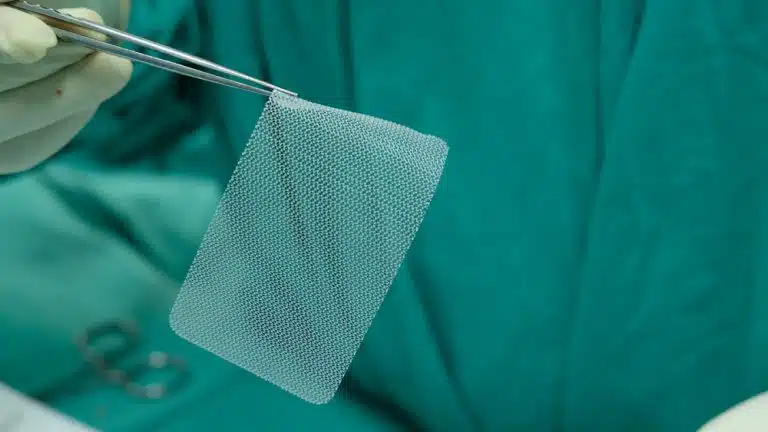
The versatility of robotic surgery extends beyond its efficiency. It caters to a spectrum of procedures, including complex abdominal wall repairs. In some cases, integrating both robotic and traditional methods, a hybrid approach proves to be the optimal strategy for achieving the desired surgical outcomes. Notably, the robotic system facilitates intricate procedures like component separation, demonstrating adaptability in addressing various hernia complexities.
The duration of a hernia repair procedure is contingent upon the nature of the hernia. Simple hernias, located at sites such as the umbilicus or groin, can be rectified in less than an hour. Conversely, complex hernia repairs, especially those involving recurrent hernias necessitating abdominal wall reconstruction, may extend the surgical duration to six to eight hours.
In conclusion, the choice between open and robotic approaches underscores the patient-centric ethos in hernia surgery. Tailoring the approach to the individual’s needs ensures an informed decision-making process. While robotic surgery may not be universally applicable, its potential for faster recovery and reduced hospitalization makes it a compelling option for eligible candidates navigating the realm of hernia repair.

Recovery after hernia surgery involves addressing common queries related to bed rest, exercise, toilet usage, diet, and preventing recurrence.
Patients often wonder about the necessity of complete bed rest after hernia surgery. Contrary to the misconception that extended bed rest is beneficial, early mobilization is encouraged. Patients are advised to avoid strenuous exercises but should engage in light activities to promote faster recovery. Walking is initiated on the same day as the surgery to enhance breathing, blood circulation, and intestinal function, reducing the risk of complications.
A prevalent concern revolves around the resumption of gym activities post-hernia operation. The recovery timeline varies, with laparoscopic hernia repair allowing earlier engagement in daily activities. Patients can progressively return to regular exercise routines, starting with walking and gradually incorporating more strenuous exercises after three months. Individualized advice is provided based on the type of hernia repair, ensuring a balance between recovery and exercise.

Practical considerations include the type of toilet used after hernia surgery. Patients with laparoscopic hernia repair have the flexibility to use both Squat toilets and Western toilets. However, those undergoing open surgery may find squatting challenging initially due to pain. Over time, patients can use either toilet comfortably, emphasizing the importance of avoiding straining during bowel movements.
Dietary myths often surround post-hernia surgery nutrition. Patients are assured that there are no major restrictions. A high-protein diet is recommended to support tissue and muscle recovery. Vegetarians are advised to explore alternative protein sources or use supplements. Fiber intake is crucial to prevent constipation, and there are no specific food items restricted after hernia surgery.
Patients often express a common concern about the recurrence of hernias after undergoing surgery, driven by anecdotes from relatives or friends who’ve experienced hernia return. The fear lingers: “Will the hernia come back after the operation?” While it is important to acknowledge this apprehension, we need to emphasize that the outcome depends on various factors.
In hernia repair, the surgeon aims to strengthen the weakened abdominal wall, typically using muscle reconstruction and mesh. However, the success of the operation hinges on a combination of patient-related factors and the specifics of the treatment.


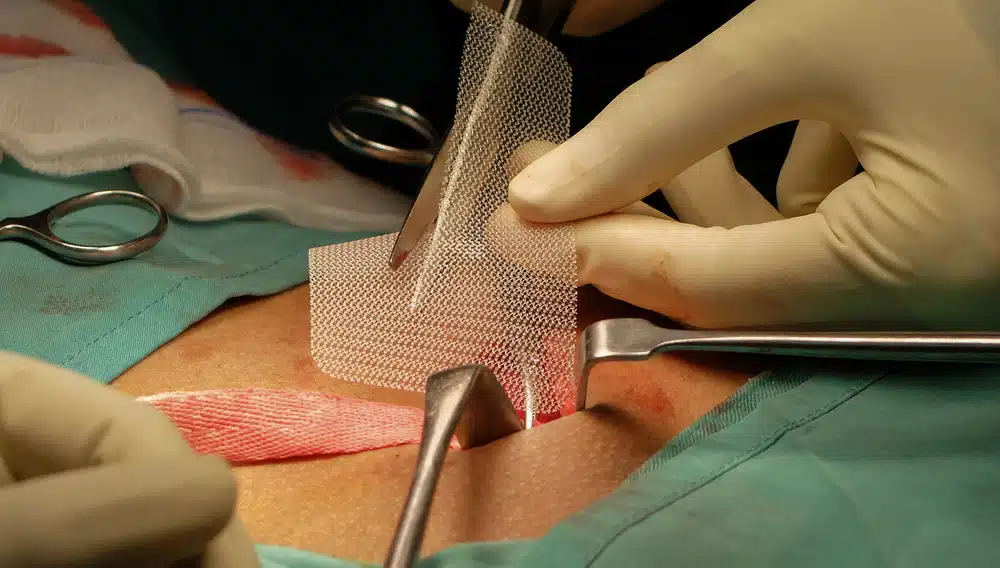
Patients often inquire about the urgency of hernia surgery, questioning whether immediate intervention is necessary. The decision to delay surgery may stem from various factors, including social commitments, financial considerations, or ongoing medical conditions. In some instances, patients may require time to mentally prepare for the procedure.
Determining when hernia surgery is imperative revolves around certain scenarios. Hernias causing severe pain, especially those resulting in emergency hospital admissions due to strangulation, demand immediate surgical intervention. Complicated hernias should not be postponed, ensuring timely resolution of the issue.
Certain characteristics make hernias amenable to safe postponement. Small belly button hernias with minimal symptoms, good muscle tone, and no severe cough or straining issues can be deferred for future repair. However, hernias that are not easily reducible or frequently get stuck outside should undergo early intervention. Jobs involving heavy lifting or conditions like prostate problems may also warrant prompt hernia repair.
There is no fixed safe period for leaving a hernia untreated. The decision depends on a complex interplay of factors, including the hernia’s characteristics, the patient’s overall health, and the nature of their daily activities. In general, all hernias, regardless of their apparent severity, inevitably require surgical repair, as they do not resolve on their own or with medications.
Patients express concerns about hernia recurrence and seek preventive measures. Adherence to dietary recommendations, especially during the initial recovery phase, is essential. Activities such as heavy weight lifting should be avoided initially. Smokers are urged to quit, as smoking adversely affects tissue quality and increases the risk of recurrence. Maintaining a healthy body weight and limiting alcohol consumption further contribute to a successful, long-term hernia repair.
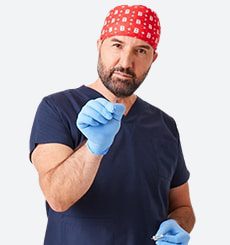
A graduate of Istanbul University Çapa Faculty of Medicine, Dr. Bülent Cihantimur specialized in Plastic Surgery at Uludağ University. Over the past 20 years, his unwavering dedication and innovative techniques have earned him numerous accolades, including The Golden Bistoury Award, The World’s Best Plastic Surgeon, and the Medical Man of the Year Award in 2014. He is one of the best to perform Otoplasty Surgery or Prominent Ear Operation with Laser.


